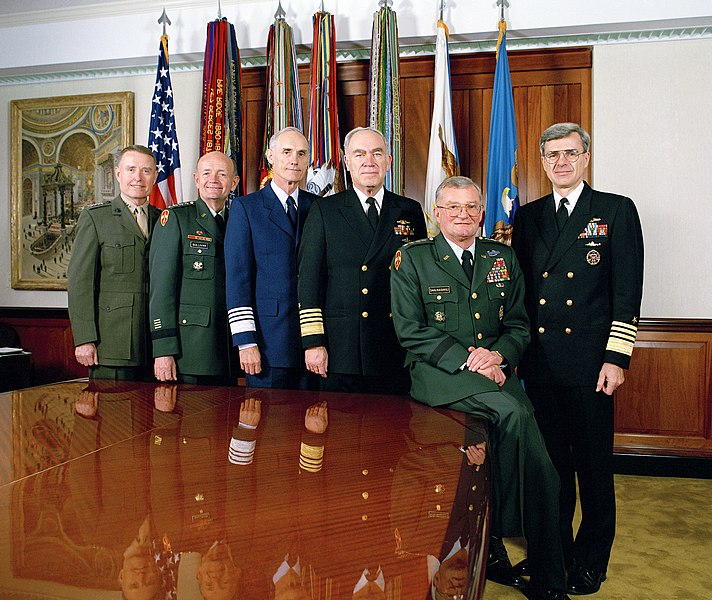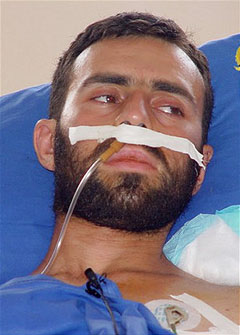Re: The Rise of the Russian Empire: Russo-Armenian Relations

U.S. Defense Secretary Robert Gates said in his address to officers at Langley Air Force Base in Virginia that Russia was focused on strengthening its nuclear capabilities rather than building up its regular armed forces, which makes maintaining the U.S. nuclear arsenal increasingly important. The two nuclear superpowers may be building up their nuclear capabilities, but no reasonable person can imagine using them. On the other hand, more armed conflicts are taking place in the world every year, which means the world needs more conventional arms, or better still, precision weapons with effects comparable to those of nuclear weapons.
As it draws attention to a Russian nuclear threat, the United States has accelerated its transition to conventional armed forces, lessening its dependence on its nuclear arsenal. Acting Under Secretary of State for Arms Control and International Security, John C. Rood, said as much in late May. Why is Gates expressing this concern about Russia's nuclear strategy? Does he know more than we do? And, is Russia really preparing to make a breakthrough in the sphere of conventional weapons? According to Reuters, "Moscow has boosted military spending as part of an effort to make Russia more assertive on the world stage after the chaos of the post-Soviet period. It has also tried to reform its military to create a more professional, well-equipped and mobile army. But that reform has been slow, some critics say."
"Russia is really not investing very much in their conventional forces. It's really clear and for a whole bunch of reasons, demographics and everything else," Gates told reporters after his visit to Langley. It seems to me the Americans are painting the situation in Russia's defense sphere all black. Colonel General Leonid Ivashov, president of the Russian Academy of Geopolitical Problems, commenting on Russia's triad of strategic nuclear weapons, including ground-based missiles, submarines and bombers said, "We are really worried by what is happening. The mobile Topol-M missile systems are vulnerable to conventional strikes; their mobility is no longer a guarantee of concealment or protection. Rather, they have become a deterrence factor only toward the east." "The airborne component of the nuclear triad is degenerating, despite promising projects underway in design bureaus. The state defense contracts do not stipulate the creation of modern strategic cruise missiles," the general said. "The situation in the naval section is also dramatic; there are no clear ways out of this dead-end."
Ivashov was clearly referring to the Bulava ballistic missile, which is to be produced for the Russian armed forces this year although the missile needs further development. Gates should be happy that even Russian generals, who cannot be suspected of love for the United States, are openly talking about the weakness of Russia's nuclear capability. In early June, Prime Minister Vladimir Putin said deadlines for the creation of new weapons for the army and navy should be streamlined. "We must make financial decisions to accelerate the completion of promising R&D projects already launched. We must restore order with deadlines for their implementation," Vladimir Putin told a June 10th meeting devoted to Defense Ministry orders due in 2009-2011. The demand to "restore order" definitely means that there is a lack of order in the development of new weapons.
In late March, Sergei Ivanov, then first deputy prime minister, told arms producers in Tula, "Many defense enterprises are not prepared for serial production of modern high-tech weapons that are in high demand on the global market." He was referring to problems with batch production of the S-400 and Pantsir-S1 air defense missile systems, which can repel precision offensive weapons and form the core of the country's aerospace defense command. The United States is working to create a global aerospace defense system whereas Russia has very few such weapons on combat duty, and all of them were created decades ago. The opinions expressed in this article are the author's and do not necessarily represent those of RIA Novosti.
Source: http://en.rian.ru/analysis/20080617/110933648.html
Gates' reference to Russia's nuclear capabilities alarming

U.S. Defense Secretary Robert Gates said in his address to officers at Langley Air Force Base in Virginia that Russia was focused on strengthening its nuclear capabilities rather than building up its regular armed forces, which makes maintaining the U.S. nuclear arsenal increasingly important. The two nuclear superpowers may be building up their nuclear capabilities, but no reasonable person can imagine using them. On the other hand, more armed conflicts are taking place in the world every year, which means the world needs more conventional arms, or better still, precision weapons with effects comparable to those of nuclear weapons.
As it draws attention to a Russian nuclear threat, the United States has accelerated its transition to conventional armed forces, lessening its dependence on its nuclear arsenal. Acting Under Secretary of State for Arms Control and International Security, John C. Rood, said as much in late May. Why is Gates expressing this concern about Russia's nuclear strategy? Does he know more than we do? And, is Russia really preparing to make a breakthrough in the sphere of conventional weapons? According to Reuters, "Moscow has boosted military spending as part of an effort to make Russia more assertive on the world stage after the chaos of the post-Soviet period. It has also tried to reform its military to create a more professional, well-equipped and mobile army. But that reform has been slow, some critics say."
"Russia is really not investing very much in their conventional forces. It's really clear and for a whole bunch of reasons, demographics and everything else," Gates told reporters after his visit to Langley. It seems to me the Americans are painting the situation in Russia's defense sphere all black. Colonel General Leonid Ivashov, president of the Russian Academy of Geopolitical Problems, commenting on Russia's triad of strategic nuclear weapons, including ground-based missiles, submarines and bombers said, "We are really worried by what is happening. The mobile Topol-M missile systems are vulnerable to conventional strikes; their mobility is no longer a guarantee of concealment or protection. Rather, they have become a deterrence factor only toward the east." "The airborne component of the nuclear triad is degenerating, despite promising projects underway in design bureaus. The state defense contracts do not stipulate the creation of modern strategic cruise missiles," the general said. "The situation in the naval section is also dramatic; there are no clear ways out of this dead-end."
Ivashov was clearly referring to the Bulava ballistic missile, which is to be produced for the Russian armed forces this year although the missile needs further development. Gates should be happy that even Russian generals, who cannot be suspected of love for the United States, are openly talking about the weakness of Russia's nuclear capability. In early June, Prime Minister Vladimir Putin said deadlines for the creation of new weapons for the army and navy should be streamlined. "We must make financial decisions to accelerate the completion of promising R&D projects already launched. We must restore order with deadlines for their implementation," Vladimir Putin told a June 10th meeting devoted to Defense Ministry orders due in 2009-2011. The demand to "restore order" definitely means that there is a lack of order in the development of new weapons.
In late March, Sergei Ivanov, then first deputy prime minister, told arms producers in Tula, "Many defense enterprises are not prepared for serial production of modern high-tech weapons that are in high demand on the global market." He was referring to problems with batch production of the S-400 and Pantsir-S1 air defense missile systems, which can repel precision offensive weapons and form the core of the country's aerospace defense command. The United States is working to create a global aerospace defense system whereas Russia has very few such weapons on combat duty, and all of them were created decades ago. The opinions expressed in this article are the author's and do not necessarily represent those of RIA Novosti.
Source: http://en.rian.ru/analysis/20080617/110933648.html
Originally posted by Armenian
View Post





 You see they already would like to use Russia only for the solution of the Karabakh issue.
You see they already would like to use Russia only for the solution of the Karabakh issue.





 So it's true what I've read about you telling lies.
So it's true what I've read about you telling lies. 





Comment